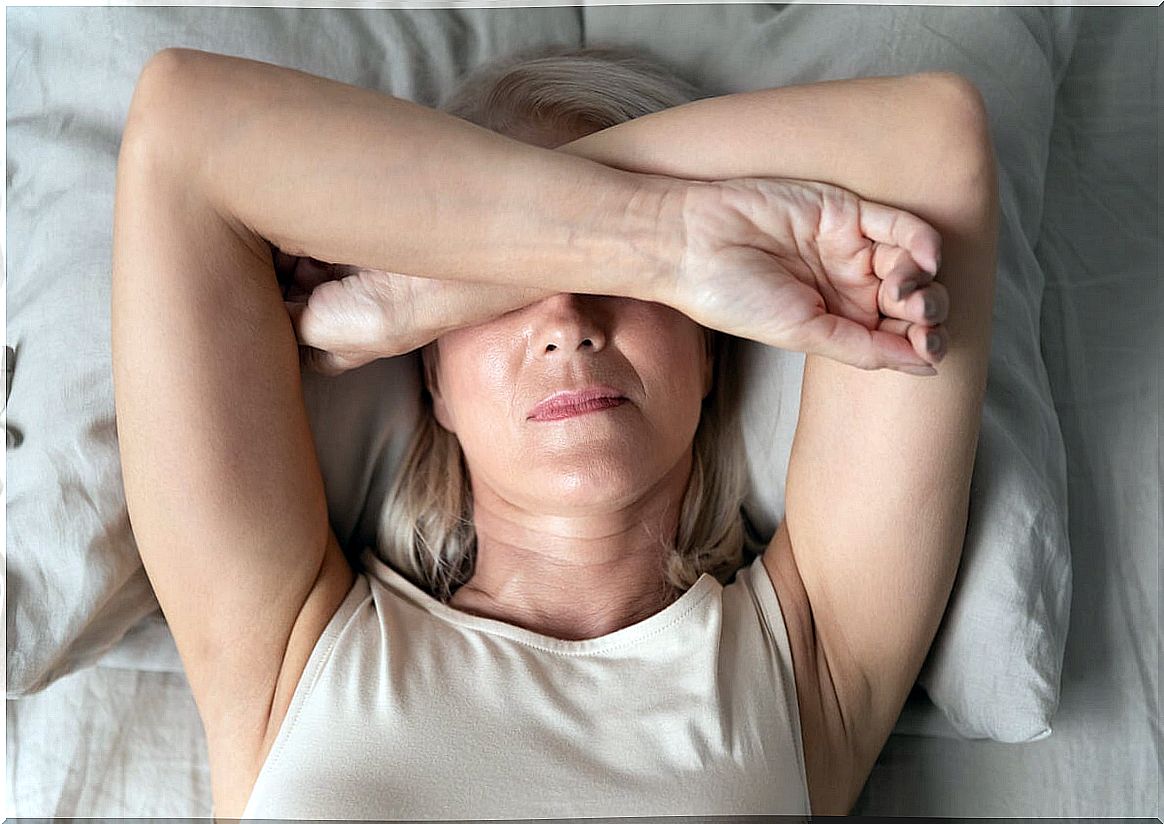This Is How Pain Affects Sleep

Pain is one of the most unpleasant, annoying and distressing sensations that we can experience. It generates restlessness, is an obstacle to carry out our daily tasks and affects our social life. But, above all, it hinders a good rest. When this discomfort is prolonged, the person’s sleep is affected, causing multiple alterations; That is why today we want to talk to you about insomnia due to chronic pain.
If at some point in your life you have suffered significant pain, you have probably come to fear the night. The sensations are exacerbated by the lack of external stimuli and the inability to fall asleep can generate a lot of frustration. For those with chronic pain, this is a constant in their daily life. And, although there may be methods to alleviate it, it is important to ensure that the quality of sleep is good.

What is chronic pain?
Pain can manifest itself in two different ways. Acute pain is one that arises in relation to a recent injury or problem, has a limited duration and fades as the body heals. On the other hand, chronic pain is one that remains for more than three months, or remains even one month after the original disorder has resolved.
Depending on its origin, this can consist of a dull pain, throbbing, pressure or stiffness, among others. In addition, there are a variety of pathologies that can lead to its appearance ; among the most common are the following:
- Arthritis, osteoarthritis and rheumatism.
- Migraines and headaches.
- Cancer.
- Nerve damage
- Fibriomyalgia
- Trauma and infections.
In general, it is estimated that between 20% and 35% of the world’s population suffers from chronic pain. The personal and financial costs derived from this reality merit investment in research.
Insomnia From Chronic Pain: How Does Pain Affect Sleep?
Insomnia due to chronic pain is just one of the consequences, and its impact can have many fronts. It has been found that 50-89% of people with chronic pain have sleep disorders and experience a poor quality of life.
Furthermore, it is important to note that the relationship between rest and pain is bidirectional: pain prevents the person from resting properly; but, in addition, sleep deprivation exacerbates the perception of painful sensations. A vicious circle is generated that is difficult to defuse.
On the other hand, when the sleep is not complete, deep and restorative, the drugs used to mitigate pain lose their effectiveness. And it is that it has been found that the suppression of the REM phase causes the antialgic action of morphine and other opioids to be reduced.
Paradoxically, these same drugs can alter the structure of sleep and contribute to the suppression of the REM phase, causing increased sensitivity to pain. Ultimately, all these interactions place people with chronic pain in a difficult situation to solve.
What can we do about it?
Unfortunately, in many cases it is not possible to prevent the onset of chronic pain. Although some conditions such as migraine have several approved preventive medications, these are not always as effective as you might expect.
In contrast, in other diseases, drugs are only prescribed for pain management once it has already appeared. So what can we do so that these sensations do not interfere so sharply with rest? There are several measures:
On the one hand, it has been found that using drugs with delayed formulations can be more effective than using those with rapid release. And it is that with this measure, we avoid the appearance of sleep disorders associated with painkillers.

Sleep hygiene
On the other hand, it is essential that the person maintain adequate sleep hygiene, even if it is difficult to implement. These simple steps can help you fall asleep and maintain sleep and improve sleep quality:
- Avoid drinking coffee, tea, sugar, and other stimulants in the late afternoon. Similarly, try not to drink alcohol as this can cause early awakenings.
- Take a warm bath or shower before bed. This can help relieve pain and induce a state of relaxation that encourages sleep.
- Make sure the environmental conditions are adequate. Darkness, silence and a temperature around 21 degrees are elements to take into account.
- Avoid doing activities in bed other than rest. Do not use it to eat or watch television.
- Adopt stable sleep routines and stick with them every day, even on weekends. Also, try to go to bed around 11 or 12 at night since it is the most favorable time for the body.
Ultimately, chronic pain insomnia is difficult to prevent and manage, but there are some alternatives. Therefore, if you suffer from this type of problem, do not hesitate to mention it to your doctor in order to look for possible solutions available. Quality sleep is essential for people’s physical and psychological well-being, take care of it as much as possible.









